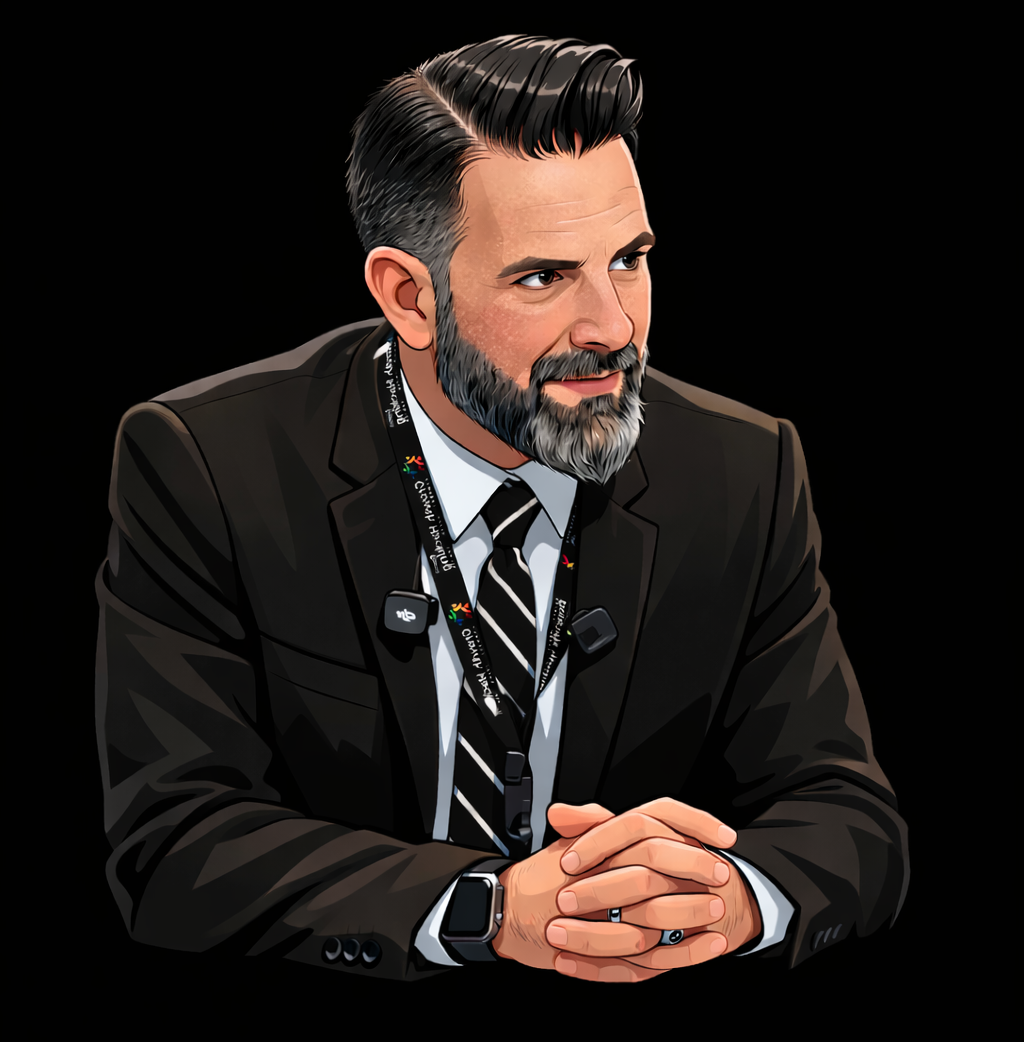
“I don’t believe it’s enough to build AI tools. We owe people something more: honest guidance on how these tools should be used. If we don’t sit with students, doctors, and the wider public and talk about what AI is, what it can’t do, and when not to trust it, then AI will end up speaking for itself, and shaping decisions before we’ve even had the chance to think.”
I’m Savvas A. Chatzichristofis, Professor of Artificial Intelligence and Vice-Rector for Research and Innovation at Neapolis University Pafos. Early on, I was obsessed with teaching machines to recognise patterns in images. These days, I’m just as focused on helping people recognise patterns in AI outputs, and know when to trust them and when to pause.
1. Who I Am
I grew up in Cyprus and studied Electrical and Computer Engineering at the Democritus University of Thrace, where I completed a Ph.D. in Computer Vision. I worked as a postdoctoral researcher at CERTH and held academic posts at the Cyprus University of Technology and at Alpen-Adria-Universität in Austria. Since 2017, I have been at Neapolis University Pafos, serving as Vice-Rector for Research and Innovation and Professor of Artificial Intelligence. I am a Senior Member of IEEE and a member of Sigma Xi. My focus is on good questions, careful methods, and learning with students and colleagues.
2. What I Do
My research sits at the intersection of Artificial Intelligence, Computer Vision, and Robotics, with emphasis on real-world applications. I have collaborated on more than fifteen European projects with teams in multiple countries. My work has appeared in journals such as IEEE Transactions on Image Processing and IEEE Transactions on Learning Technologies. I serve as Editor-in-Chief of the journal AI in Education. I am also listed in career-long bibliometric rankings of research impact. A key objective is to translate research into classroom practices, policies, and collaborative initiatives.
Selected externally funded projects:
- sFly. Vision-based navigation for drones without GPS using visual SLAM. [Video][Cordis]
- NOPTILUS. Coordination of autonomous underwater vehicles for deep-sea missions. [Video] [Cordis]
- Compact Composite Descriptors (CCDs). Efficient techniques for multimedia indexing and retrieval. [Read More]
In addition to publications, I contribute articles and short videos to make technical ideas more accessible. I have also contributed to open-source and commercial tools, including LIRe, img(Rummager), and Houdini MC.
3. Why I Do It
I study how AI can be introduced into classrooms and clinics with clear safeguards and measurable benefits. My work focuses on ethical, pedagogical, and inclusive uses of AI that support human reasoning rather than automate decisions. In education, I examine when and how teacher-mediated AI improves learning for underrepresented students. In medicine, I design decision support tools that assist clinicians, preserve judgment, and strengthen professional autonomy.
AI should adapt to human needs and acknowledge human complexity. Public understanding and responsible adoption matter, so I contribute to podcasts, media discussions, school visits, and outreach as part of my academic work.
A practical interest in the philosophy of information informs my research. I study how meaning is created, shared, and contested when mediated by machines, with the goal of developing systems that enable people to think critically and make informed decisions.
4. With Whom I Walk
I work with learning communities in classrooms, coding clubs, festivals, and robotics events, turning curiosity into shared, hands-on activities. I also collaborate with educators and institutions through policy groups, international consortia, and teacher training that link local practice to global frameworks.
I offer free school visits, open resources, and practical sessions to keep learning open. These initiatives have been recognized with national distinctions in Cyprus and with the All Digital Awards at the EU level. What matters most, however, are the difficult questions and the moments of discovery that come from young learners.
I serve on national advisory bodies, including Cyprus’s National AI Taskforce, where I contribute to strategies for AI in education. I also write children’s books that combine storytelling and science.
As the Head of the Department of Computer Science, I have observed a steady culture of curiosity among our students. Results include participation in the ICPC World Finals and recognition in international programming contests. These outcomes demonstrate how shared, open learning environments can foster meaningful innovation long before it is showcased on a stage, in a lab, or in print.